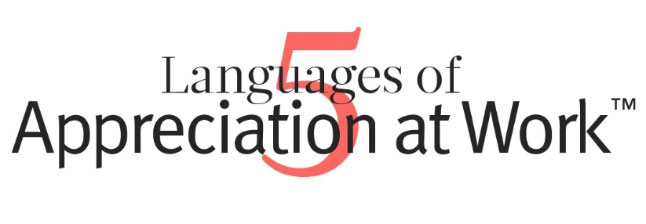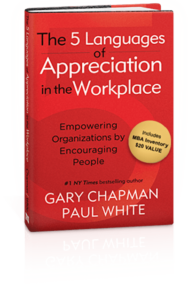Authentic Appreciation is directly proportional to workplace productivity, job satisfaction and the health of the organization. By identifying which ‘language’ of appreciation is most valued by the individual, colleagues and supervisors can express gratitude and appreciation in a way that makes each person feel truly appreciated and valued.
In applying the 5 Languages of Appreciation to work relationships, we have found:
- Individuals differ in how they prefer to be shown appreciation.
- Employee recognition and appreciation are not the same!
- Supervisors often try to communicate appreciation in the ways they like, but often “miss the mark” with their team members.





 The 5 Languages of Appreciation are detailed below.
The 5 Languages of Appreciation are detailed below.





